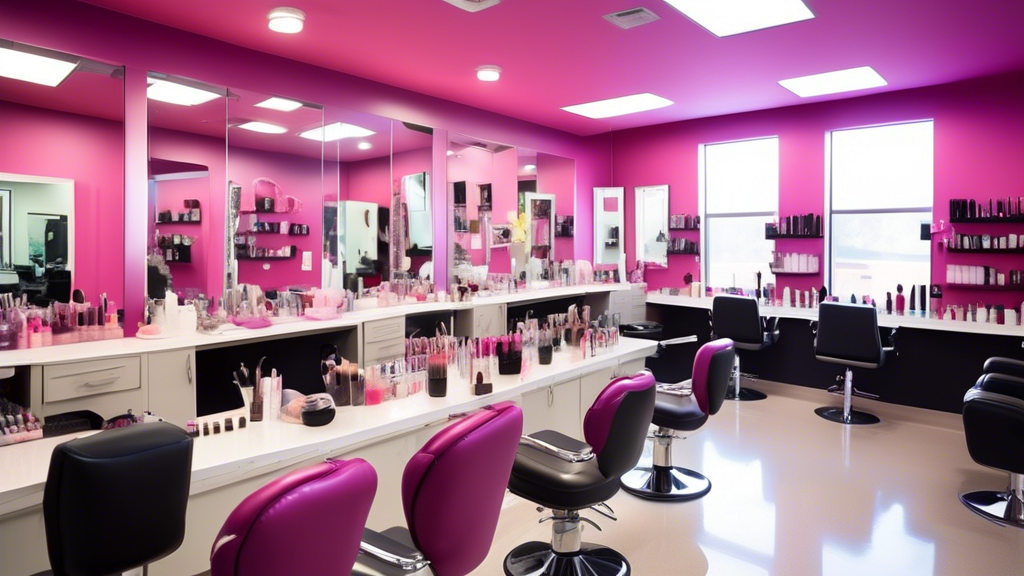The allure of beauty has been a constant in human history, with countless individuals seeking to enhance their appearance and express their personal style. As the demand for professional beauty services grows, so does the need for proficient and skilled beauty practitioners. This demand has given rise to a variety of beauty schools dedicated to training the next generation of cosmetologists, estheticians, nail technicians, and more. In this article, we will explore the fascinating world of beauty schools, their offerings, and their role in shaping careers in the beauty industry.
Understanding Beauty Schools
Beauty schools, also known as cosmetology schools, are specialized institutions that provide education and training in various beauty and personal care services. These schools offer both theoretical knowledge and practical skills required to pursue a career in the beauty industry. The curriculum in beauty schools is comprehensive, covering a wide range of subjects including hair cutting, coloring, styling, skincare, makeup, nail care, and more.
Types of Programs Offered
Beauty schools offer several types of programs catering to various interests and career goals within the beauty industry:
- Cosmetology: This is the most comprehensive program, encompassing hair care, skincare, makeup, and nail services. Cosmetology students learn various techniques such as cutting, coloring, perming, relaxing, and styling hair, along with skincare treatments and nail services.
- Esthetics: This program focuses on skincare. Estheticians are trained in facial treatments, hair removal, makeup application, skin analysis, and other beauty services aimed at improving the health and appearance of the skin.
- Nail Technology: This specialized program is dedicated to nail care, including manicures, pedicures, nail art, and nail enhancement techniques such as gel and acrylic nails.
- Barbering: Similar to cosmetology but primarily focused on men’s hair care, barbering programs teach hair cutting, shaving, beard trimming, and grooming techniques.
- Makeup Artistry: This program covers various aspects of makeup application for different occasions such as daily wear, special events, theater, and television. It includes training in techniques, color theory, and product knowledge.
Accreditation and Licensure
Accreditation is an essential aspect of beauty schools, ensuring that the education provided meets industry standards. Accreditation is granted by recognized agencies that evaluate the quality of education, curriculum, faculty qualifications, facilities, and student support services. Attending an accredited beauty school is crucial for students seeking financial aid and eligibility for state licensure.
Licensure is mandatory for most beauty professions. After completing the required training program, graduates must pass a state licensing examination, which typically includes both written and practical components. Licensure ensures that practitioners meet the necessary standards of competency and safety required to provide beauty services to the public.
Career Opportunities
The beauty industry offers a myriad of career opportunities for beauty school graduates. Some potential career paths include:
- Salon or Spa Professional: Many graduates work in hair salons, day spas, or nail salons, providing an array of beauty services to clients.
- Freelance Artist: Opportunities abound for self-employed makeup artists, hairstylists, or nail technicians who cater to private clients or work on special projects such as weddings or photo shoots.
- Beauty Instructor: Experienced professionals may choose to teach future beauty practitioners by becoming instructors at beauty schools.
- Product Development and Sales: Graduates with a passion for products may find roles in product development, sales, or education for beauty brands.
- Media and Entertainment: The entertainment industry offers roles for beauty professionals on film, television, and theater sets.
The Path to Success
Success in the beauty industry requires a combination of technical skills, creativity, and excellent customer service. Beauty school provides the foundational training, but ongoing education and staying updated with current trends are crucial for continued growth and success. Networking with industry professionals, participating in competitions, and gaining real-world experience through internships or apprenticeships can also help aspiring beauty professionals thrive in their careers.
Conclusion
Beauty schools play a pivotal role in shaping the future of the beauty industry by training skilled professionals who set industry standards. Whether aspiring to become a cosmetologist, esthetician, nail technician, or makeup artist, beauty schools offer the essential education and training needed to embark on a rewarding career in beauty. With countless opportunities available, the world of beauty schools opens doors to a vibrant and ever-evolving industry where creativity and technical skill meet to create beauty and confidence.

